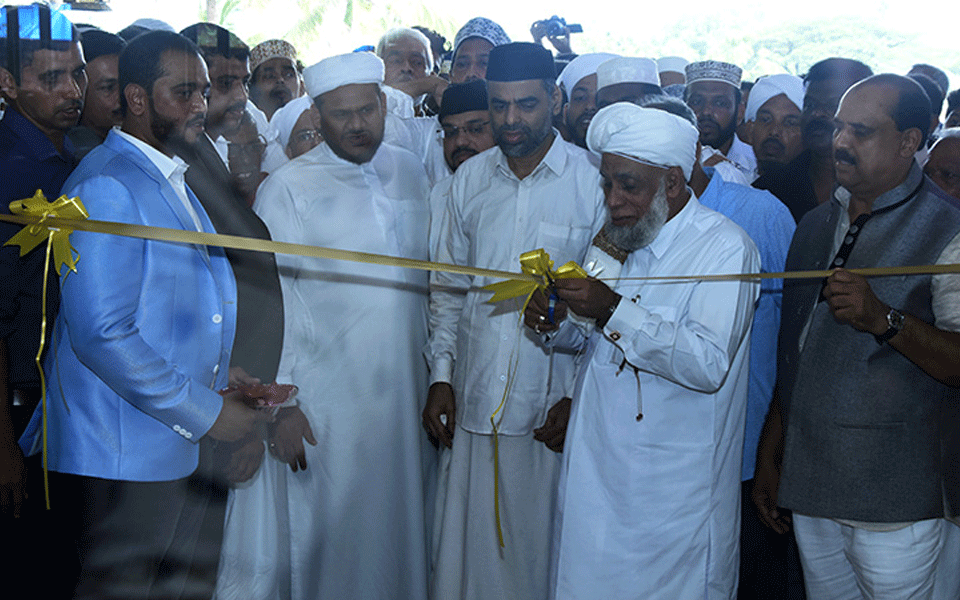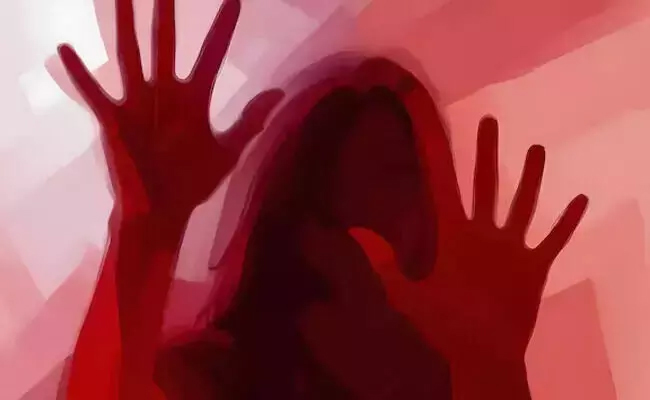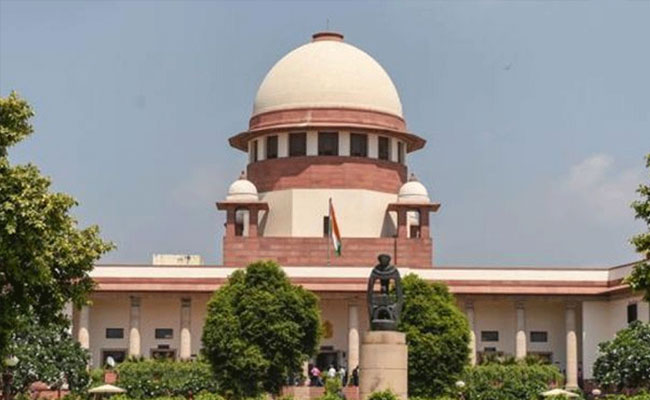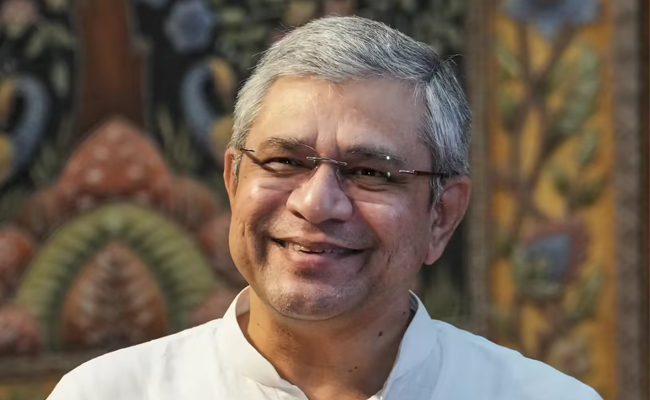Manjeshwar: 'Grand Auditorium', which has been constructed near the Hosangadi Junction, was inaugurated on Sunday by Asayyed Jifri Muthukkoya Thangal, president of All Kerala Jamiat ul Ulama .
Manjeshwar Jamaat President Asayyad MA Athaulla Thangal presided over the programme.
Asayyad KS Atakkoya Thangal Kumbol's son Asayyad KS Mukthar Thangal and Asayyad Abdul Rahman Shaheer Al Bukhari Malhar inaugurated the namaz room.
Kasaragod MLA NA Nellikunnu, Kasaragod zilla panchayat president AGC Basheer, Manjeshwara Block Panchayat president AKM Ashraf, Manjeshwar gram panchayat president Azeez Haji, vice president Shashikala, Karnataka State Exhibition Authority chairman Abdul Azeez, Hakeem Kunnil, advocate Srikanth, BV Rajan, KR Jayanand, NM Abubakar, K Abdulla (Bava), VM Abdul Hameed, MA Muhammed, Hasseinar Kodel, VK Podiyabba, retired sub registrar KM Abdul Razaq, Kunil organization vice president PS Moidin Kunhi, Harishchandra, Munir Bava, London Mohmmed Haji, Abrar Moulvi, MM Abubakar, MA Abdul Haji Kalandar Store, Muhammed Haji, Mangalpadi Mubarak Abbas and others were present.
Proprietors VM Farooq and Muhammed Ashraf, Shabazi VH, Shaz VH of Yafco Group, KA Mansoor of Bava Group, Yakub of Hosangadi Farooq Timber and Saw Mill, Mohmmed of Karwar New City Plywood, Abdul Razaq of Hosangadi Hi-Tech Wood Furnish and others were also present.
“When I had conducted my relative’s marriage at marriage hall a few years ago, many people opposed it. It is common that those who do not have space at home will conduct marriages in convention halls. Everyone should understand this. Opposition is not good to use basic facilities. Cleanliness should be maintained in the hall”.
- Sayyid Muthukkoya Thangal, president, Samastha Kerala Jamiyyathul Ulama
This auditorium will help the people of the district. Such halls are required for the development of the society. By the grace of Allah, let this hall develop further.
- Sayyed MA Athaulla Thangal, president, Manjeshwar Samuyukta Jamaath
Let marriages and other programmes of all communities be held in the hall and thus, it should become a centre for communal harmony.
- Gopal Das, Kanna Kalekar, Kaanila Sri Bhagavati temple
The dream of late Haji Moidin Kunhi, who had contributed much for the development of Hosangadi, was fulfilled by his son VA Farooq by constructing an auditorium. Everyone should cooperate for the success of the hall.
- NA Nellikunnu, MLA, Kasaragodu
Engineer Abdul Khader, Abid Ali, Mohmeed Sirajuddin, helpers Ashok, Rathish, Yadav were felicitated on the occasion. The auditorium is a three-storey building with fully air conditioned facility. The hall was built on 50,000 sq ft and more than 250 cars could be parked and it has 1000 seating capacity and at a time, 1000 people could be dined at the dining hall. It has separate namaz halls for men and women.






















Let the Truth be known. If you read VB and like VB, please be a VB Supporter and Help us deliver the Truth to one and all.
Thiruvananthapuram (PTI): Four officials of the Fort Police Station here have been suspended in connection with an alleged custodial torture incident, police said on Friday.
The suspended personnel are Grade Sub-Inspector Sreekumar and Civil Police Officers Siju, Sunil and Gireesh.
Last week, Fort Police registered a case after a motorcycle was allegedly found stolen near a hotel here.
During the investigation, police identified two Kottayam natives, Jinu and Unni, as suspects.
Jinu was later taken into custody from Kochi, which led to the apprehension of Unni and a minor boy, officials said.
After initial interrogation, the minor was released.
However, family members of Jinu and Unni alleged that they were brutally assaulted while in custody.
After being remanded in judicial custody, Jinu’s condition reportedly worsened.
He was shifted to Thiruvananthapuram General Hospital and later referred to the Government Medical College Hospital, officials said.
Police officials said Jinu suffered serious kidney dysfunction and remains in critical condition.
Unni was also admitted to the hospital with injuries, officials added.
Following allegations of custodial torture, Thiruvananthapuram City Police Commissioner K Karthick ordered an inquiry by an Assistant Commissioner to ascertain whether custodial assault had taken place.
Police said the inquiry found that custodial assault had occurred and that arrest procedures were not properly followed.
Based on the report, the City Police Commissioner ordered the suspension of the four officers and initiated a departmental probe against them, police said.











